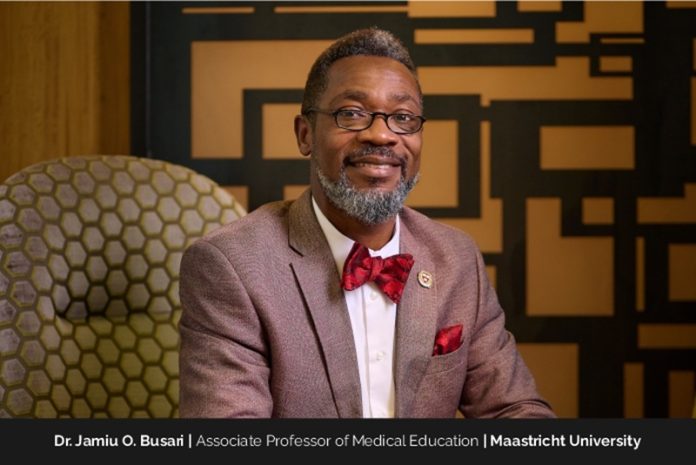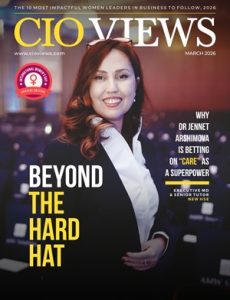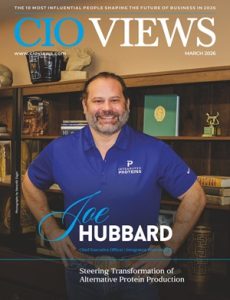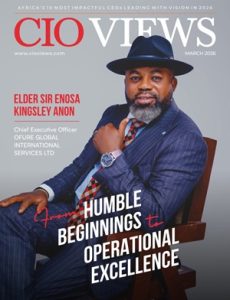At a tender age, Dr. Jamiu O. Busari, now Associate Professor of Medical Education at Maastricht University, discovered that his inherent desire was to be kind, help people, take care of them, and make a difference in their lives. As a young child, he aspired to join a profession where people wore smart uniforms and imagined being a police officer or a fireman.
However, his mother, a first-generation Nigerian in England, disapproved of his choice, terrified that he would get shot or killed in a fire. So, when he saw a surgeon in their greens on the General Hospital series on TV, he decided he wanted to be a surgeon, a profession that was acceptable for a kid from African parents. He eventually became a pediatrician, a discipline that resonated more with his core values as a person. This intrinsic wish to help people, coupled with his mother’s influence, steered him into a field where he could serve others as a physician and medical educator.
The Journey of Teaching and Leading
Dr. Busari’s journey into the field of medical education began when he came to the Netherlands in the early 90s. After completing a first degree in Medicine in Nigeria, he got a scholarship to study health professions education at Maastricht University in the Netherlands. His pivot into teaching was sown by the example of passionate, inspirational teachers at his medical school in Nigeria who lacked a formal medical education degree, like (the late) Prof. Kuti, whom he remembers as “an intelligent and inspiring physician, a great storyteller with a natural talent for teaching.” This made him wonder if a professor could teach so well without formal medical education training, how much better it could be with a formal educational background.
Having been involved in leadership activities since secondary school, as social prefect, and later as sports secretary, and a member of his medical school’s senate at university in Nigeria, Dr. Busari’s leadership potential was clear. In 1992 he was invited to participate in the first cohort of a new Master’s in Health Professions Education program, going on to do a PhD in Medical Education, and becoming a pediatrician. His formal leadership journey began in 2008, when he attended Harvard Business School in Boston to study the science of medical leadership and learn how to teach it as a physician educator.
In terms of leadership, Dr. Busari believes that navigating the complexities of global healthcare systems requires a level 5 leadership mindset – a paradoxical blend of personal humility and fierce professional will, as described by Jim Collins. Equally vital is emotional intelligence, which enables leaders to connect across cultures, manage change, and inspire collective progress in high-stakes, diverse environments.
Balancing Medical Progress & Principles in an Evolving World
During his early medical education in Nigeria, Dr. Busari was not exposed to contemporary medical equipment, only being introduced to it while pursuing a master’s degree in medical education in the Netherlands. Over time, he has witnessed the field’s swift transition from primitive infrastructure to the digital era, including the emergence of Artificial Intelligence (AI). He finds value in both conventional and cutting-edge medical approaches, with the flexibility to adjust and use whatever instrument or treatment best suits the patient.
As a teacher, Dr. Busari recognizes the changing needs of students and technology over the years, recalling a teaching moment when he perceived a resident’s use of her smartphone during a lecture as disrespectful, until he realized she was using it to reference information. He believes that the future of medical education will be greatly influenced by AI-powered learning and transformative education that aims to create change agents. Citing Frenk et al. (Lancet, 2010), he highlights the necessity of training health professionals to lead change rather than merely adapt to it.
Dr. Busari sees AI and technology in healthcare as an unstoppable wave of change. He’s excited about the potential, but approaches it with a healthy dose of skepticism. He believes in embracing innovation, once it’s proven to work, and sees his role as an ethical watchdog, making sure it’s used responsibly. For him, it’s all about finding the right balance between progress and keeping care centered on people. At the same time, he warns against getting swept up in the hype and overlooking real concerns like job loss and misuse. “It’s about finding the right trade-offs so everyone benefits, not about throwing everything out,” he observes.
Defining Success Through Impact, Not Accolades
Dr. Busari defines success as the impact of his contributions on the careers of those he served as an educator and healthcare professional. His contributions as an educator were recognized nationally and internationally with several educational awards in NL, Canada, India, and the UK. His work as a healthcare professional was also recognized with honorary fellowships and adjunct professorships in Canada and England.
Dr. Busari agrees that he’s successful, based on the traditional definition of success, what the world sees and associates with an individual – accolades, awards, fellowships, innovations, and programs set up. Of his professional achievements, he’s most proud of his Honorary Fellowship of the Royal College of Physicians and Surgeons of Canada and the standing ovation he received after his closing plenary speech at the AMEE conference 2024 in Bern. From a personal point of view, he feels that he’s achieved more success with a stable and loving family and kids who are doing well.
But what resonates most for him are the impressions and relationships he has established throughout his career, especially when people refer back to those encounters. “Success is in those warm relationships and experiences I’ve had with people, such as a young mother whose premature baby I cared for in one of her most vulnerable moments. That child is now a healthy young lady who just finished a degree in psychology and reached out to join my network on LinkedIn. These are not things that the outside world sees, but they have a significant impact on people’s lives,” he reflects.
Turning Adversity Into Advocacy
Dr. Busari recalls one of the most significant challenges he faced – being unfairly forced out of his position as a program director in 2018 – a moment that exposed the harsh realities of implicit bias and systemic inequities in healthcare leadership. Rather than retreat, he responded through scholarship, authoring “#UsToo“ in BMJ Leader (2019) and again in 2023 with “The Taste of Success“ in Postgraduate Medical Journal, after a similar experience led to his departure as Dean of Health Professions Education at his current workplace. Instead of growing bitter, he turned personal injustice into critical, solution-focused writing as a means of healing and resistance. He continues to pursue this mission with resilience, clarity, and purpose.
Dr. Busari appreciates that he’s in a special and privileged position at this point in his life and career, one earned through tenacity and distinguished by success in his academic, professional, and personal endeavors. He has reached a point where he no longer feels the need to prove anything, despite being a visible minority who has experienced systemic difficulties. In the future, he aspires to stay true to his core beliefs and give back by supporting or leading a healthcare organization.
A Personal Mission Rooted in Social Justice
The Jump18 Foundation represents Dr. Busari’s dedication to social justice, advocacy, and equity in healthcare. He sees it as more than just a project. After moving to Aruba for personal reasons, he noticed a rising childhood obesity epidemic in his pediatric practice, especially among kids from low-income, low-education families. To ensure that they could access culturally appropriate support instead of relying solely on clinical care, he created a community-driven care pathway “by Arubans, for Arubans.”
Over the last four years, the program, which is entirely sponsored and run by volunteers, has empowered six cohorts of kids, helping them regain their self-worth, confidence, and health. By supporting equity, participating in critical discourse, mentoring and sponsoring underprivileged individuals, and creating connections for systemic change, Dr. Busari ensures that his work significantly contributes to social justice. “This is what I stand for,” he emphasizes. “It’s not about accolades – it’s about helping people and changing lives.”
Living in Alignment with His True North
Dr. Busari attributes his ability to find balance in a demanding work life to discovering his “true North,” a notion sparked by Bill George. “I’ve established my true North and set my moral compass in that direction. In so doing, I remain focused on what matters most to me as a person. I have involved my family in the vision, which they share and support me in. Maintaining balance rests on a mélange of investing in my family, focusing on the things that make me tick, and making my work a hobby,” he explains.
Dr. Busari combines presence, joy, and purpose by transforming his work into a passion-driven pastime, often joking that heading to work with a trolley feels more like going on holiday. He also sets boundaries by only taking on projects that align with his values, allowing him to stay focused, energized, and in harmony with both his personal life and professional mission.
Leading with Humility, Learning, and Kindness
Dr. Busari sees mentorship as an opportunity for mutual growth, emphasizing the importance of open dialogue while sharing his own stories of success, failure, and lessons learned. “I try to make each encounter one to remember, regardless of the experience,” he affirms. His international background made him wiser and helped him realize that there’s no singular route to success. Yet, humility remains a constant. “I’ve learned to choose my battles. You achieve more by being kind, sharing knowledge, and genuinely investing in the growth and success of others,” he reflects.
Dr. Busari builds bridges by focusing on shared human realities and modeling inclusive leadership. “I focus on the one thing people understand: privilege, or the lack of it. Being an example for others and standing by them makes inclusivity real,” he shares. To those beginning their careers in medicine, his message is clear: Even if you’re at the top of your game, remain a learner. Asked about the legacy he hopes to leave, he offers a guiding principle: “If there’s one thing you can be, be kind.” That philosophy shapes how he leads and how he lives.
Dr. Busari voices his concern about young people overanalyzing before taking action, and recalls moments when his mentors’ guidance only made sense in hindsight. “What helped me succeed was my ability to listen and to learn,” he adds. “Even when I didn’t get it, I just did what they told me. And in doing so, I discovered the pearl in their advice. Sometimes, you need to trust the relationship with your mentor. If they tell you to Jump, you ask, how high.”
Choosing Integrity and Kindness
When reflecting on how he defines himself, Dr. Busari points to three core qualities: self-expression, inspiration, and integrity. “Those are the three things I use to express myself,” he affirms. “But if I have to choose one out of those three, then I’ll choose integrity, being integer.”
A deep commitment to kindness is rooted in his personal journey. Fairness has been another guiding principle – fighting for it, but more importantly, embodying it. “Fairness means a lot to me. Not just fighting for it, but enacting it and demonstrating it. That kindness stems from the background of someone who has had to deal with unfairness,” he reflects. “Someone who has had to go through a lot of injustice, and has seen people around him being treated unfairly and in an unjust manner.”
This history shapes the way he interacts with others and has become the standard that Dr. Busari holds himself to. “Being kind to people… It’s the thing people won’t always say out loud or remember for what you did, but they’ll remember how you made them feel,” he advises. “It’s the experience you leave them with. I strive to get better at that every single day – kindness, and leaving people with the experience of being valued, respected, and appreciated.”
Conclusion
Dr. Jamiu O. Busari’s leadership demonstrates a consistent dedication to equity, compassionate mentoring, and lifelong learning. Having been shaped by personal experiences of systemic injustice, he leads with humility and kindness, prioritizing dialogue over hierarchy and integrity over recognition. His actions highlight inclusivity without resorting to theatricality, and his stories are educational tools rather than self-promotion.
Dr. Busari’s guiding principle is to leave people feeling heard and respected rather than trying to be remembered. By leading with substance in a system often driven by status, he chooses integrity over image, and his focus remains on fairness, growth, and leaving people feeling valued.





